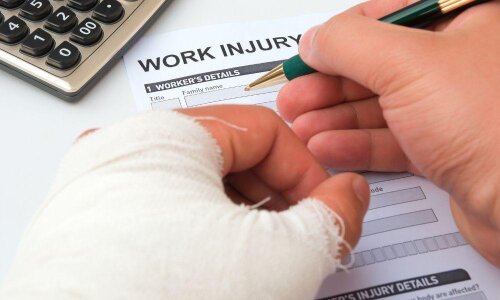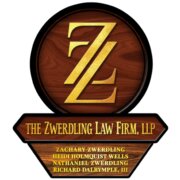Best Wrongful Death Lawyers in Kansas
Share your needs with us, get contacted by law firms.
Free. Takes 2 min.
Or refine your search by selecting a city:
List of the best lawyers in Kansas, United States
About Wrongful Death Law in Kansas, United States
Wrongful death occurs when a person's death is caused by the negligent, reckless, or intentional actions of another individual or entity. In Kansas, wrongful death laws allow the family or representatives of the deceased to seek compensation for their loss. The goal of these laws is to provide financial relief and a measure of justice for surviving family members affected by the unexpected death of a loved one. Wrongful death claims in Kansas are civil cases, meaning they are decided in civil courts and typically result in monetary damages rather than criminal penalties.
Why You May Need a Lawyer
Navigating a wrongful death claim can be complex and emotionally taxing, especially while grieving a loss. Here are common situations when you may require legal help for wrongful death in Kansas:
- Proving that another party’s actions, negligence, or inaction directly caused your loved one’s death.
- Dealing with insurance companies that might deny or underpay legitimate claims.
- Understanding Kansas-specific legal procedures and required evidence for a successful claim.
- Ensuring all paperwork and filings are completed within statutory deadlines.
- Calculating fair compensation for both economic and non-economic losses.
- Representing your interests in settlement discussions or court proceedings.
An experienced wrongful death attorney can guide you through these challenges, advocate for your rights, and help maximize potential compensation.
Local Laws Overview
Kansas wrongful death cases are governed by state statutes, primarily Kansas Statutes Annotated 60-1901 through 60-1906. Here are some key aspects:
- Who Can File: In Kansas, the wrongful death lawsuit must be brought by the heirs at law of the deceased, which often includes spouses, children, parents, or other relatives.
- Statute of Limitations: Claims must generally be filed within two years of the date of death. Failing to act within this period may result in losing the right to sue.
- Types of Damages: Kansas allows recovery for both pecuniary losses (such as loss of financial support, loss of household services, funeral expenses) and noneconomic losses (such as mental anguish, loss of companionship).
- Limits on Damages: Kansas law places a cap on certain noneconomic damages, although the cap amount can change over time.
- Comparative Fault: If the deceased was partially at fault, Kansas follows a modified comparative fault rule, which may reduce or bar recovery if the decedent was 50 percent or more at fault.
Frequently Asked Questions
What is considered wrongful death in Kansas?
Wrongful death in Kansas is a legal term that describes a situation where someone dies due to another party’s wrongful act, neglect, or default. This can include accidents, medical malpractice, or intentional acts.
Who can file a wrongful death lawsuit in Kansas?
Any heir at law of the deceased can initiate a wrongful death lawsuit in Kansas. This typically includes spouses, children, parents, or sometimes other relatives, depending on the family structure.
What damages are recoverable in a Kansas wrongful death case?
Recoverable damages include medical and funeral expenses, loss of financial support, loss of household services, mental anguish, suffering, and loss of companionship.
Is there a time limit to file a wrongful death claim?
Yes, the statute of limitations in Kansas is typically two years from the date of death. It is crucial to consult a lawyer promptly to avoid missing deadlines.
Will the at-fault party go to jail if I sue for wrongful death?
Wrongful death suits are civil actions aimed at financial compensation, not criminal prosecution. However, the at-fault party may face separate criminal charges depending on the circumstances.
Do I need to prove negligence to win a wrongful death case?
In most wrongful death cases, you must prove the defendant’s negligence or wrongful actions caused the death. Some cases may involve intentional acts, which require different legal proof.
How long does it take to resolve a wrongful death lawsuit?
The length of a wrongful death case in Kansas depends on the complexity of the case, evidence gathering, settlement negotiations, and court schedules. Cases can range from several months to over a year.
How are damages distributed among family members?
Kansas law provides guidelines for distributing damages among eligible heirs based on their relationship with the deceased and, in some cases, their financial dependence.
What if the deceased was partly at fault for their own death?
Under Kansas’ modified comparative fault rule, if the deceased was 50 percent or more at fault, heirs may be barred from recovering damages. If the fault is less than 50 percent, damages are reduced proportionally.
Can a wrongful death settlement affect taxes or government benefits?
Wrongful death settlements may have tax implications or affect means-tested government benefits. It is advisable to consult a tax professional or attorney for guidance on your specific situation.
Additional Resources
If you need more information or assistance regarding wrongful death in Kansas, consider these helpful resources:
- Kansas Judicial Branch: Official state resource for court processes, forms, and legal guides.
- Kansas Bar Association: Provides lawyer referral services and legal information for residents.
- Kansas Legal Services: Offers free or low-cost legal assistance for eligible individuals and families.
- Local Probate Courts: Useful for questions on estate administration related to wrongful death claims.
- National organizations: Groups such as the American Association for Justice provide educational materials on wrongful death claims.
Next Steps
If you believe you may have a wrongful death claim in Kansas, it is important to take timely and informed action. Here’s how to proceed:
- Gather relevant documents, such as medical records, accident reports, and proof of relationship to the deceased.
- Contact an experienced wrongful death attorney licensed in Kansas for a free consultation. Many lawyers work on a contingency fee basis, meaning you pay nothing unless you win compensation.
- Do not discuss details of your potential claim with insurance companies or opposing parties before consulting your lawyer.
- Follow your attorney’s advice regarding case preparation and legal filings to ensure your rights are protected under Kansas law.
Acting promptly gives you the best chance to secure justice and the compensation you deserve for the loss of your loved one.
Lawzana helps you find the best lawyers and law firms in Kansas through a curated and pre-screened list of qualified legal professionals. Our platform offers rankings and detailed profiles of attorneys and law firms, allowing you to compare based on practice areas, including Wrongful Death, experience, and client feedback.
Each profile includes a description of the firm's areas of practice, client reviews, team members and partners, year of establishment, spoken languages, office locations, contact information, social media presence, and any published articles or resources. Most firms on our platform speak English and are experienced in both local and international legal matters.
Get a quote from top-rated law firms in Kansas, United States — quickly, securely, and without unnecessary hassle.
Disclaimer:
The information provided on this page is for general informational purposes only and does not constitute legal advice. While we strive to ensure the accuracy and relevance of the content, legal information may change over time, and interpretations of the law can vary. You should always consult with a qualified legal professional for advice specific to your situation.
We disclaim all liability for actions taken or not taken based on the content of this page. If you believe any information is incorrect or outdated, please contact us, and we will review and update it where appropriate.
Browse wrongful death law firms by city in Kansas
Refine your search by selecting a city.














